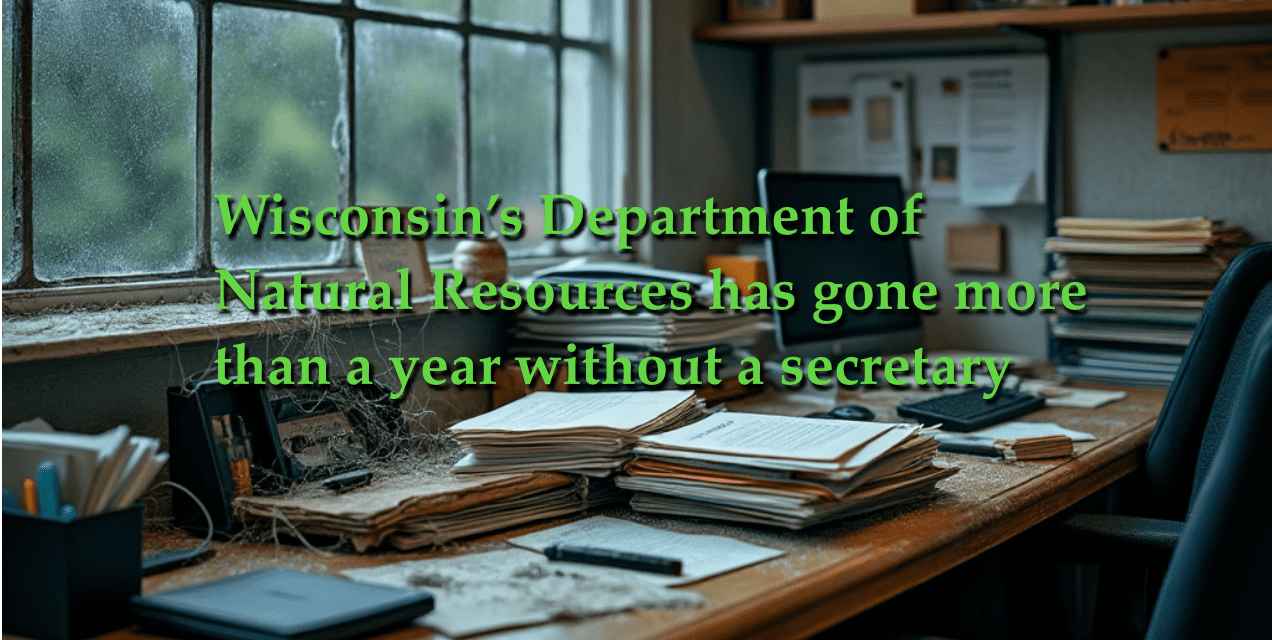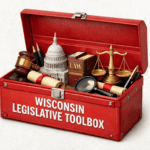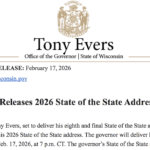11.2.24 Dairyland Sentinel
Friday was an unprecedented anniversary in the history of the Wisconsin Department of Natural Resources.
As the calendar flipped to November, it signified that it had been a year since Adam Payne abruptly stepped down as DNR secretary. Governor Evers has not named a replacement. The position has remained vacant since Payne’s departure, leaving this key state agency without its top leader.
Senator Rob Stafsholt is beyond frustrated.
“It has been a frustrating and chaotic year with the absence of leadership at the DNR and it is very evident that there are bureaucrats at the helm,” Stafsholt (R-New Richmond) said.
At the start of 2024, the Department of Natural Resources (DNR) forecasted a $16 million shortfall in its Fish and Wildlife fund, sparking worries over the clarity and efficiency of how conservation funds are managed and expended within the DNR.
“Evidently, Governor Evers doesn’t believe that a large deficit at the DNR is urgent enough to appoint a Secretary,” said Stafsholt, who said the legislature is addressing the issue in spite of the lack of leadership at the Department. “I’d like to point out that the latest budget provided increases to non-resident hunting, fishing, and combination license fees. The increase is estimated at almost $2.5 million annually for the Fish and Wildlife fund. There was also a transfer of $25 million to the Fish and Wildlife account from the forestry account. In addition, the legislature passed Senate Bill 780 to increase nonresident archer and crossbow hunting license fees that will provide an estimated annual increase of $409,000 to the account.”
Stafsholt, the St. Croix County Republican who serves as the chairman of the Senate Committee on Sporting Heritage, pointed to a litany of controversies at the DNR.
- In January, the Senate Committee on Sporting Heritage conducted a session to review a DNR rule regarding gray wolf hunting limits. Concerns surfaced over territorial zones, quotas, tagging, and unclear stipulations for property owners. The Committee decided to push for changes, with the DNR consenting to revisit the regulations. However, with no Secretary in office, these discussions have yet to progress.
- April saw Governor Evers veto legislation that would have allocated $125 million for new DNR initiatives aimed at aiding communities impacted by PFAS. The bill had undergone significant modifications based on requests from the DNR under the previous Secretary’s guidance. Governor Evers’ veto, five months post-Payne’s resignation, raises questions about whether he was aware of these negotiations or the DNR’s incorporated requests, Stafsholt argues.
- In June, legal action was initiated against the DNR by the Wisconsin Institute for Law & Liberty (WILL), challenging an administrative rule that not only extended beyond fishery regulations but also impinged on the Second Amendment rights of citizens. Following the lawsuit, the DNR pledged in court to initiate the rule’s repeal promptly. Had there been a Secretary Stafsholt believes, this issue might have been resolved through negotiation rather than legal confrontation, sparing public funds.
- By July, the DNR unexpectedly terminated its trout stocking collaboration with local clubs across Wisconsin, citing inability to afford fish transportation despite having raised them since November. Clubs had already completed necessary preparations. It later emerged that the DNR had indeed transported the fish but released them into a nearby river, bypassing the clubs. Senator Stafsholt thinks this incident starkly illustrates the impact of absent leadership on established conservation programs at the DNR.
Stafsholt then pushed for the Legislative Audit Bureau to conduct an audit of the Fish and Wildlife accounts to identify any inefficiencies or mismanagement.
“I think we owe it to the people of Wisconsin, who are paying these dollars through license purchases, to make sure the money is spent appropriately.”
As Wisconsin enters it’s second year with no DNR Secretary, he is pleading with Evers to appoint a strong leader.
“I honestly do not understand how there could be a yearlong vacancy for the most important position at one of the most important agencies,” Stafsholt said. “I am imploring Governor Evers to appoint a DNR Secretary so we can get to work on the problems plaguing the department.”
Emailed. Free. Wisconsin News and Analysis.



















